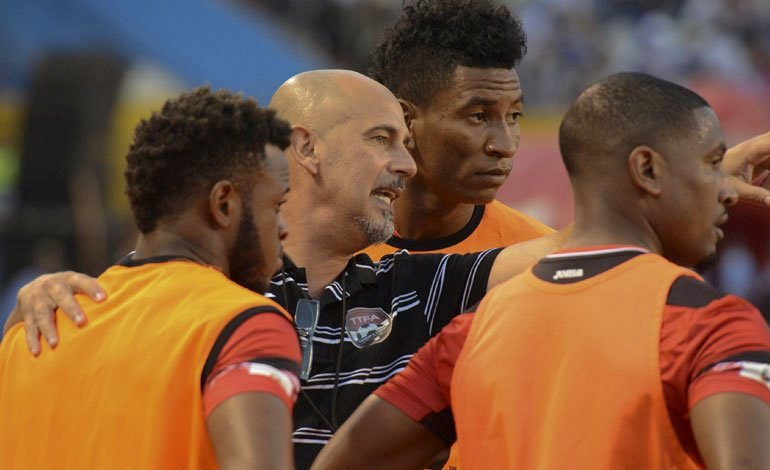The Trinidad and Tobago FA elected to cut loose coach Stephen Hart, but his replacement will have to quickly cope with challenges.
Former Trinidad and Tobago coach Stephen Hart knew what was coming.
Nothing was settled when we spoke days before a meeting with the Trinidad and Tobago Football Association, and Hart expressed optimism about the team's future. But he also knew how the culture is - and how losing two matches to start the final round of World Cup qualification looks.
Hart was fired at the meeting, but said before it that administrators often look for the simplest fix.
"You have to be stable in administration. People are always jumping in, changing and looking for solutions and sometimes they say, ‘Let’s just change the coach,’ or ‘Let’s just change one player,’" Hart told Goal USA. "And it’s never as simple as that when the structure that is necessary to bring the football forward, especially from a youth development perspective on a consistent basis, you need some sort of continuity in player development. Then you also need to have your players consistently playing at a decent level outside of the country, sorry to say that, but that’s the reality."
Now, as Hart moves on to his next project, Trinidad and Tobago must move on as well, and fans will hope the new manager will be able to lead the team back to the heights it achieved in the previous decade, when it made the 2006 World Cup.
The fact that the announcement won't come until Wednesday doesn't engender a lot of faith. The United States fired Jurgen Klinsmann on Nov. 21 and announced his successor, Bruce Arena, a day later. Hart and the federation parted ways Nov. 24, with the replacement set to be named nearly two full weeks after the firing.
While both the U.S. and Trinidad and Tobago started the Hex with defeats and decided it was time to make a change, it was even more important for officials in Port of Spain to act quickly. An extra-time Caribbean Cup qualification loss to Martinique in Fort-de-France sent the Soca Warriors into a playoff with two other teams to get through to a playoff for a spot in the Gold Cup. Those matches will take place in Trinidad, which is obviously a big benefit, but as other managers around the region call in mini-camps ahead of January tournaments, Trinidad and Tobago's players still are unsure about who will be calling the shots. There's a vital match less than a month away for Trinidad and still no coach.
It's tough to judge whether or not there will be progress without knowing who Trindad and Tobago has been able to secure as its next boss. David John-Williams, the president of the federation, told local media the federation received 26 applications for the job. Surely there are good applicants in that pool, and the person who ends up filling the post may be a genius hire.
But there's also reason for skepticism with a federation that has struggled with a lack of resources.
"The relationship is an ongoing one in which we’re trying to do what’s best for the team, I guess," Hart said of the TTFA before his removal. "But anybody coming into that situation, it’s very difficult because there’s a complete lack of financial stability. And once there’s a lack of financial stability, what is necessary is to raise the standard of your flagship team, which is your senior men and that is not marked up the way it should be compared to other teams in the Hex."
Trinidad and Tobago's women's team also has had issues with finances, essentially arriving in the United States without money in 2014 for a qualification tournament that ended with the team remarkably falling just shy of a spot at the 2015 Women's World Cup. As Hart notes, this is a new federation, but the early signs haven't been inspiring.
Hiring a quality coach and funding his project so that he can oversee a successful team would be the best thing for soccer in Trinidad and Tobago. Sadly, we've too often seen directors take decisions that weren't in the best interest of the sport and those who play and support it. It's too early to say if letting Hart go was the right thing, but as he pointed out the job is always going to be a difficult one until changes take place higher up the food chain.
"For me, the teams in the Caribbean, it’s always rolling the dice. It’s always a fluke when the teams do well," he said. "For example, they did well at the last Gold Cup and they do well because you have time with the team, spend some proper time and developmental time with the unit and you go into the Gold Cup and you show a fair amount of competency, but even when you get to the latter stages you sometimes struggle to get over that hump. It’s a matter of stability and treating players in the right way and paying them on time. There are so many things that need to be done."

